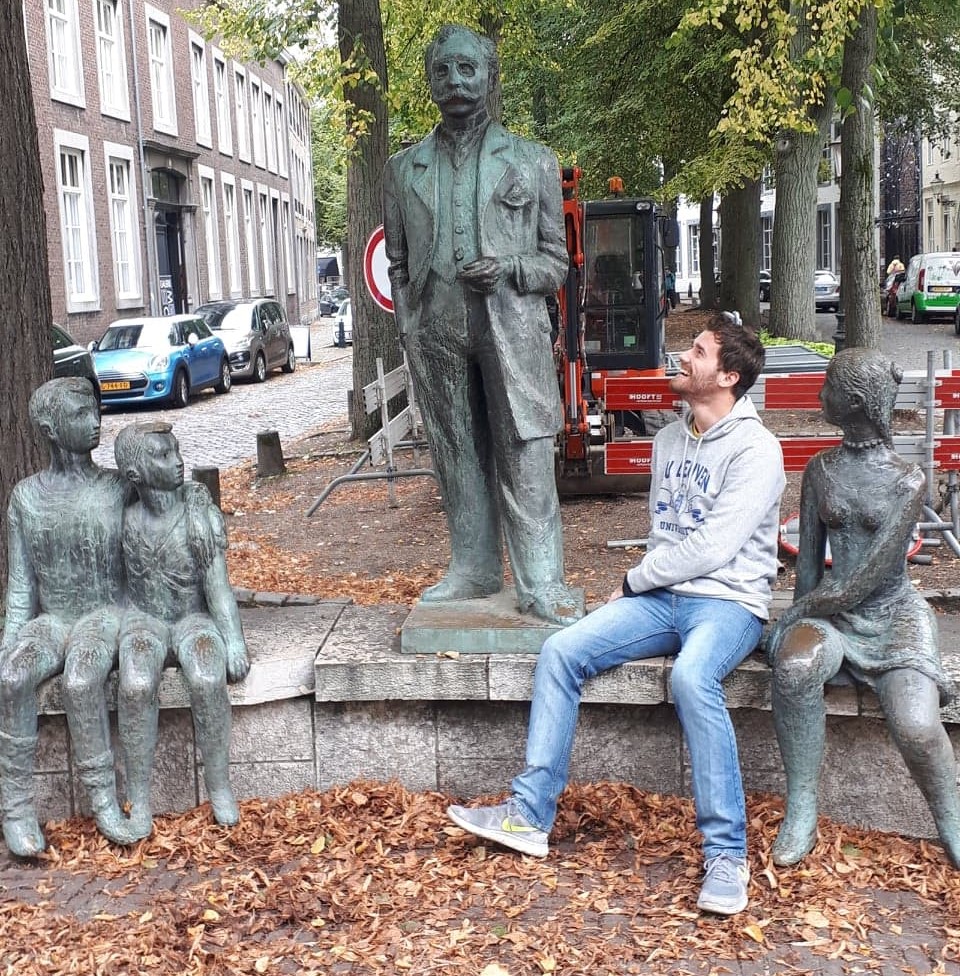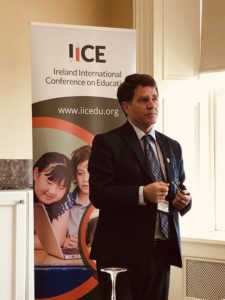Home » 2022
Yearly Archives: 2022
University Degree v. University Education
In this blog, I share thoughts written by Shaun Smith, a recent University of Windsor graduate, on the differences between a university degree and a university education. It is inciteful and will likely result in some important reflections being made on the university student experience.
-Clayton Smith
Six years ago I sat in a large classroom surrounded by other recently-graduated high school students entering my program and listened to one presenter after another speak a variation of the same thing, “I wish I’d gotten involved sooner.” These presenters themselves were older students, about to leave university and go on either into the workforce or further education, and at the time, I couldn’t fully comprehend what exactly it was that they were attempting to say. One completed undergraduate degree later, when I was working with incoming high school students myself, I found myself telling them the same thing I had been told when I was in their position.
What these presenters by and large were saying as a collective was that they felt as though they had missed out on certain aspects of university life early in their time on campus. That their hesitation to reach back when the opportunities reached out had cost them in various personal, academic, and professional ways. It was only later, in their third or fourth years, did they fully take advantage of these opportunities.
Despite the advice of the presenters, my time in university began to play out in a very similar way. I was a commuter student, whose first-year mandatory classes were organized by my faculty to be in convenient windows of time (e.g. 8:30 AM-1 PM), which meant that outside of these windows, I perceived there to be little reason why I should remain on campus. Certainly, my fellow students also felt this way, as our faculty building was virtually deserted after 3 PM every day, when the final class had ended. As a true commuter student, I went to campus for class, and left as soon as I could. That pretty accurately describes the first two years of my undergraduate, I even studied at home, or with one or two of my classmates off-campus.
Said differently, I was in the process of earning a university degree. My grades were good, and I had worked hard enough in my second year that my name showed up on the Dean’s List for the first time. By any academic measure, I was well on track to graduation.
In third-year, however, something changed. Although I had a reasonably positive and fulfilling social life (primarily off-campus), the decision was made to make more of an effort on campus as well. I had always played intramural sports, but now I found myself hanging out with the people I knew there outside of the gym or soccer pitch, which opened up an entire community to me (who wound up becoming an incredible source of social support for me during the COVID-19 pandemic). I had always done due diligence in my classes, but when a professor asked if any of us were interested in competing in a case competition at another university, this time I thought, “why not?” instead of “that’s not for me.” Instead of leaving campus when my classes were completed, I began to actively look for things to do, which resulted in me doing everything from judging academic debates to participating in mental health initiatives for faculties that were not even my own. I went to buildings on campus I never had before through electives that I found genuinely fascinating, and unlike my first two years, actually made an effort to be a part of those groups instead of dipping upon the conclusion of the class. This, for the first time, actually opened up the entire university to me as opposed to just my own department.
I could go on, but for the sake of brevity, will instead summarize by saying that this was every day. My university experience went from a primarily class-based academically grounded experience to a socially diverse and entirely unpredictable day-to-day experience with people I perhaps had just met that morning, doing activities that the previous version of myself could not have possibly seen himself participating in.
Perhaps this sounds stressful. Perhaps it seems as though my academics would suffer, that this spontaneity where I departed my home every morning having no idea how the day would play out could only create harm towards the goal that every student has when they first come to university: the degree.
The complete opposite was true.

I became significantly happier. My grades skyrocketed. I went from being an above-average student to one of the best in my faculty. I made friends from every corner of campus, and because of the international nature of the university, every corner of the world. My professors not only learned my name, but began offering research opportunities and academic-related guidance that had always been there, but I hadn’t previously had the gumption to take advantage of. For the first time, I realized what those senior students had been trying to convey – that there is a significant difference between a university degree and a university education.
A university degree is something we all know. It’s a piece of paper that signifies that an individual has undergone an accepted curriculum and passed. But that’s all it is.
University education is something else entirely. Yes, it is everything that happens inside of the classroom, but more importantly, it’s everything that happens outside said classroom.
When I graduated from university, I had a collection of skills that I had learned there, but the vast majority of them I obtained from the education, not from the degree. The university degree taught me important skills: work ethic, consistency, specialized knowledge, and showing up. The university education taught me everything else.
When I took part in the “real world” this collection of skills proved invaluable. Interpersonal dynamics in particular have played a strong role, and the social environment of a diverse campus is the perfect place to cultivate such a skill. Of course, there are skills beyond that that has drastically improved everything from my overall adaptability in both professional and personal situations. Everything from my public speaking to my comfortability with challenging my own worldview has its root in my university education.
If this is still somewhat unclear, refer to the age-old conflict between intelligence and wisdom. If intelligence is the presence of knowledge, and wisdom is the ability to apply it, the university degree is the presence of knowledge in an individual, and the university education is the skills from which one can apply that knowledge most effectively.
Even as a student I became aware of all this. The question following my third year was how to maximize this education while I still was in the opportunity-laden university environment. For me, it resulted in my going on a student exchange to Belgium (something that I in my first-year would have been both impressed and terrified by) for my final undergraduate year. To say that it was stepping outside of my comfort zone is the understatement of the century, but it certainly maximized the university education aspect, and I look back on years three and four as the best of my life…so far.
Fast-forwarding to the current day, as I apply for positions and look to start what I hope is a long and successful professional career, I am often relying on my university education, and my prospective employers are too. No HR or management person has cared one bit what my GPA was, in fact, I’ve never been asked. However, they care very strongly about one’s ability to solve their problems, and very rarely is that solution specialized knowledge. It is instead one’s ability to problem solve complex and ever-evolving challenges and to be able to do so as part of some type of team.
My university degree prepared me only in part for that. My university education absolutely finished the job.
-Shaun Smith
Teaching Through the Screen
Earlier this week, during the virtual Fierce Education conference titled, Higher Education: Helping Faculty Navigate top Challenges in this New Blending Learning Environment, I had the opportunity to take in a talk presented by Sean Michael Morris, vice-president, academics at Course Hero. In his presentation, “Teaching through the Screen: Engaging Imagination to Engage Students,” Sean spoke about critical pedagogy as a humanizing pedagogy; that our focus should be on “seeking the human behind the screen, the human behind the bureaucracies of education, the human behind behaviorist technologies.” So, put another way, we should not teach to the screen (after all it is just a digital tool!), but look through it to those behind the screen who we are teaching. Only by changing our perception of online learning will we be truly able to engage our students. Wow, what a revelation!

Looking into the distance at the Cliffs of Moher, Ireland
Sean introduced us to Maxine Green who wrote in 2000 that “Our obligation today is to find ways of enabling the young to find their voices, to open their spaces, to reclaim their histories in all their variety and discontinuity” (Releasing the Imagination, 120). Imagination, as a “practice of freedom,” can inspire us to change the way we reach our learners. With the COVID-19 experience and our two-year pivot to online learning, this is more needed today than ever.
He then reminded us of what Jesse Stommel said about starting by trusting our students and emphasized that students are producers of knowledge, not just consumers of knowledge. Remembering that the more we know, the less we imagine, can be a powerful learning concept. Engaging students in a learning partnership is empowering for both learners and instructors. In a 2014 interview, Stommel commented:
Learning is always a risk. It means, quite literally, opening ourselves to new ideas, new ways of thinking. It means challenging to engage the world differently. It means taking a leap, which is always done better from a sturdy foundation. This foundation depends on trust – trust that the ground will not give way beneath us, trust for teachers, and trust for our fellow learners in a learning community.
-Jesse Stommel
So, what if we trusted our students as co-learners and used our imagination to see through the screen?
While this may have been true pre-pandemic, it is even more true now. The days of students coming to us to attend in-person classes in university lecture halls have probably changed. An increasing number of students will probably be seeking online courses, be they synchronous, asynchronous, or blended. They will be the new traditional learners in post-secondary or tertiary learning. We will need to trust them and encourage their learning by “seeking the human behind the screen.”
I am ready!
-Clayton Smith
The Changing Roles of Higher Education
After nearly two years of teaching exclusively online, I began teaching in person today. A little nervous but pumped regarding the prospect of seeing students in person again.
This led me to think about what kind of experience students will want in this near-to-the-end pandemic world we are entering. It was then that I came across an article, written by Dana Abdrasheva, Diana Morales, and Emma Sabazlieva, in University World News, an online newsletter, that led off with the title, How Do Students Want Universities to Change in Future?

This article presented a summary of a UNESCO report, Thinking Higher and Beyond: Perspectives on the Futures of Higher Education to 2050, which presented the views of students from around the world who participated in one of 55 focus group consultations conducted in 2020-21 as part of UNESCO’s Futures of Higher Education project. Some of the themes identified include:
- Campus experience will be transformed: Campus experiences will be complemented (but not replaced) by integrating technology into teaching and learning.
- A shift from mobility to engagement: Recognized that “mobility will turn into connectivity” and that travelling to other countries might not be necessary to acquire an international educational degree.
- Co-creation of learning environments: “New forms of knowledge construction, based on cooperative and collaborative relationships between teachers-students and students-students” will result in more co-creation of learning.
- Higher education and the labour market: Links between higher education and the job market are of prime importance, with many calling for more “market-ready” preparation.
- Global processes linked to local communities: Connectivity is seen as the big takeawaywith calls for increased connections between global and local communities.
The big question is whether we, in higher education, are ready to attend to students’ views on the changing roles of higher education.
Throughout the pandemic, I can recall conversations with students who lamented about the loss of in-person instruction, while others asked for their courses to remain online. This led me to conclude that it is not one way or another, but looking at what is needed and then delivering the student experience as close to that vision as possible. This does not mean we will return fully in person, but neither does it mean we will stay fully online. We need to do what is best for our students, and in doing that, we will find a higher education experience where the campus experience is transformed, our focus is placed on engagement, we engage with our students as partners in learning, and connect our work with the labour market and global communities.
These are fascinating times!
-Clayton Smith
Recent Comments